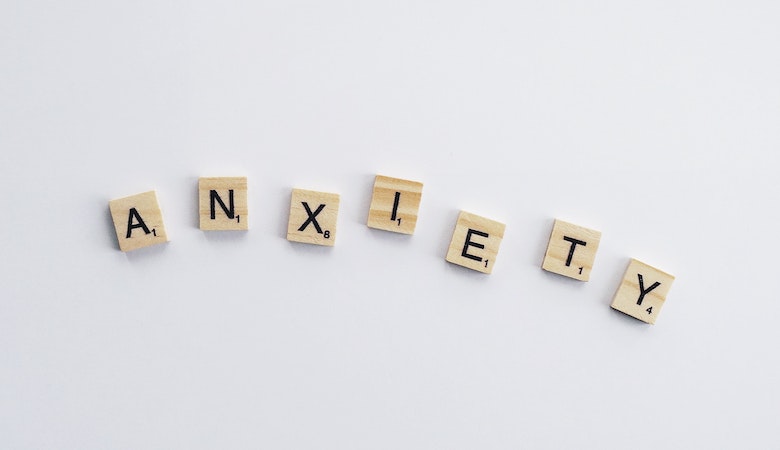
For years now, a lot of our attention has been concentrated on just how we physically feelwhen it comes to health. While physical health is an important aspect of overall wellness, it is by no means the sole determinant. Mental health is equally, if not more, important when it comes to determining your overall well-being.
Neglecting your mental health can come with long-term repercussions that can impact your personal and professional life. It can be easy to brush off signs of bad mental health as just a phase or an off day. However, paying close attention to these signs can help you seek timely help and get your life back on track. There are at least 5 signsthat can indicate that it’s time to get in touch with a therapist. Keep reading below to learn more.
Your mood is erratic
There are days when we feel fine one moment and at the other feel hyper or irritable and ready to lash out. Experiencing such moments a few times probably isn’t a sign of deeper concern, but if you feel you’ve been acting and feeling unpredictable and erratic, it might warrant a trip to the therapist. Emotional dysregulation is one of the most common signs of mental distress and signals that your brain is so burdened that it can’t regulate your emotions appropriately.
It might be worth a trip to the therapist if you’re experiencing angry outbursts, random bursts of energy, downness, and fatigue abruptly over a long period. Such symptoms can interfere greatly with your personal and professional life and can harm your relationships. A therapist can help you understand and address the issues that might be causing this emotional dysregulation. Getting emotional dysregulation counseling, in particular, can help you fix your erratic mood and return to normalcy. This counseling can also help you develop greater emotional resilience with time.
You’ve experienced a loss
Dealing with a loss can inarguably be one of the most challenging parts of anyone’s life and can leave you feeling devastated. Losses don’t always have to mean dealing with a death. It can also mean dealing with a divorce, a breakup, or the end of any other relationship. It can also be a monumental life loss, such as losing your home or anything else. In any case, coping with a loss can be incredibly challenging, especially when you don’t have the one thing that kept you grounded.
Grief can be incredibly complex, with its stages. One moment can have you thinking that you’ve started to recover, but the very next moment can send you reeling back. Many people often feel like they have to radically restructure their lives following any loss, and this feeling can be pretty overwhelming.
you understand all the grief and figure out the best way to move forward without repressing your feelings.
Nothing interests you anymore
Having a phase where you feel a little tired of your hobbies, friends, or anything, in general, can be normal. However, if you’ve been feeling detached from your friends, work, hobbies, and everything else for a prolonged period, there might be a bigger problem. Anhedonia is one of the key hallmarks of depression and is characterized by a loss of interest in hobbies, work, social activities, and even physical intimacy.
Anhedonia can make you feel as if everything around you is muffled and can keep you from enjoying things that would have previously excited you. This might not seem like such a serious issue initially, but it is one of the factors that can affect your personal and professional life the most.
It means you have no will to succeed or make an effort for anything in your life, and it can mean you start to push away everyone and everything you love. If you’ve been feeling disconnected from everything around you, getting in touch with a therapist is imperative. A therapist can analyze your symptoms and help you figure out why you’re experiencing them.
You’re experiencing recurring physical symptoms
The truth is that mental and physical health coincide deeply, and the impact on one can strongly affect the other. If you’ve been feeling strange, unexplained symptoms without any medical cause, it might be worth checking out your mental health.
Symptoms such as headaches, fatigue, nausea, stomach issues, and aches and pains, in particular, can have a strong link to your mental health. Additionally, trouble sleeping, obesity, and heart issues can also signal mental health problems.
If you leave these problems unchecked for too long, the issue can get out of hand. If your doctor suggests that there’s no physiological cause of your problems, getting in touch with a therapist can help you figure out if there’s something else that might be the cause.
You’ve gone through something traumatic
If you’ve experienced a traumatic incident, getting past it without therapy can be incredibly challenging. Sometimes, it can be hard to move past such incidents, even if you have emotional support. Traumatic incidents such as accidents, assaults, or any other mishaps can leave lasting scars and can leave us feeling like a shell of ourselves. You might feel easily triggered and can experience immense anxiety, depression, and fear.
If left unchecked, PTSD symptoms can escalate into psychosis, aggression, and more. Handling this situation alone can be challenging, especially when every trigger can send you reeling. If you’ve gone through any trauma recently, speaking to a therapist is the only way to handle your symptoms.
A therapist can know just how to handle the emotional scars you’re struggling with and can help you develop resilience with time. A therapist can help you confront your deepest fears in a controlled environment and can help you learn how to adapt to such situations in the future.
Conclusion
Deciding to head to a therapist can be a hard decision, but one that can ultimately help you set your life on a more positive track. Seeking therapy can help you develop greater resilience with time and can teach you to handle your emotional triggers independently. Moreover, with time therapy can help you make more meaningful, lasting bonds too.




